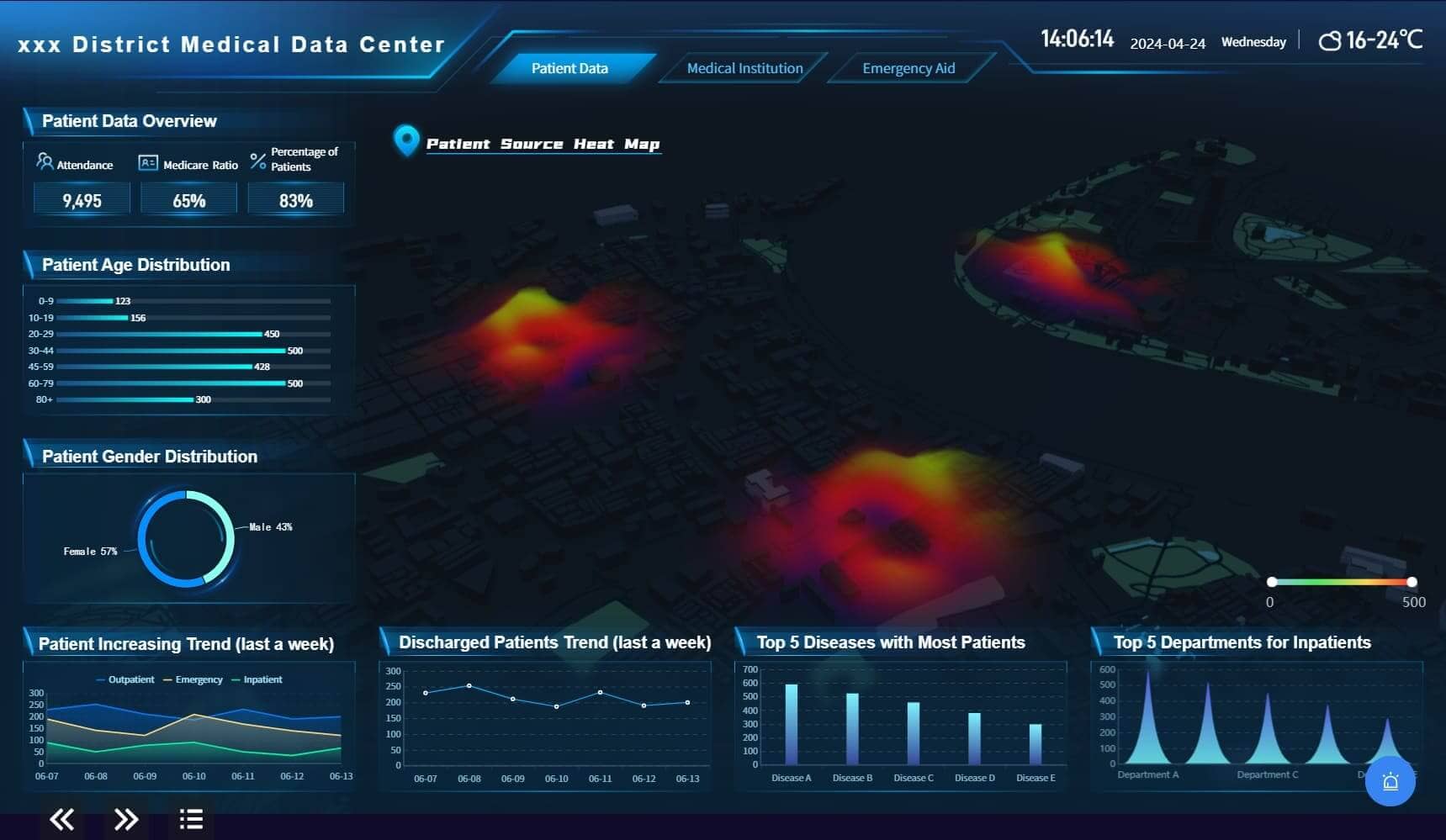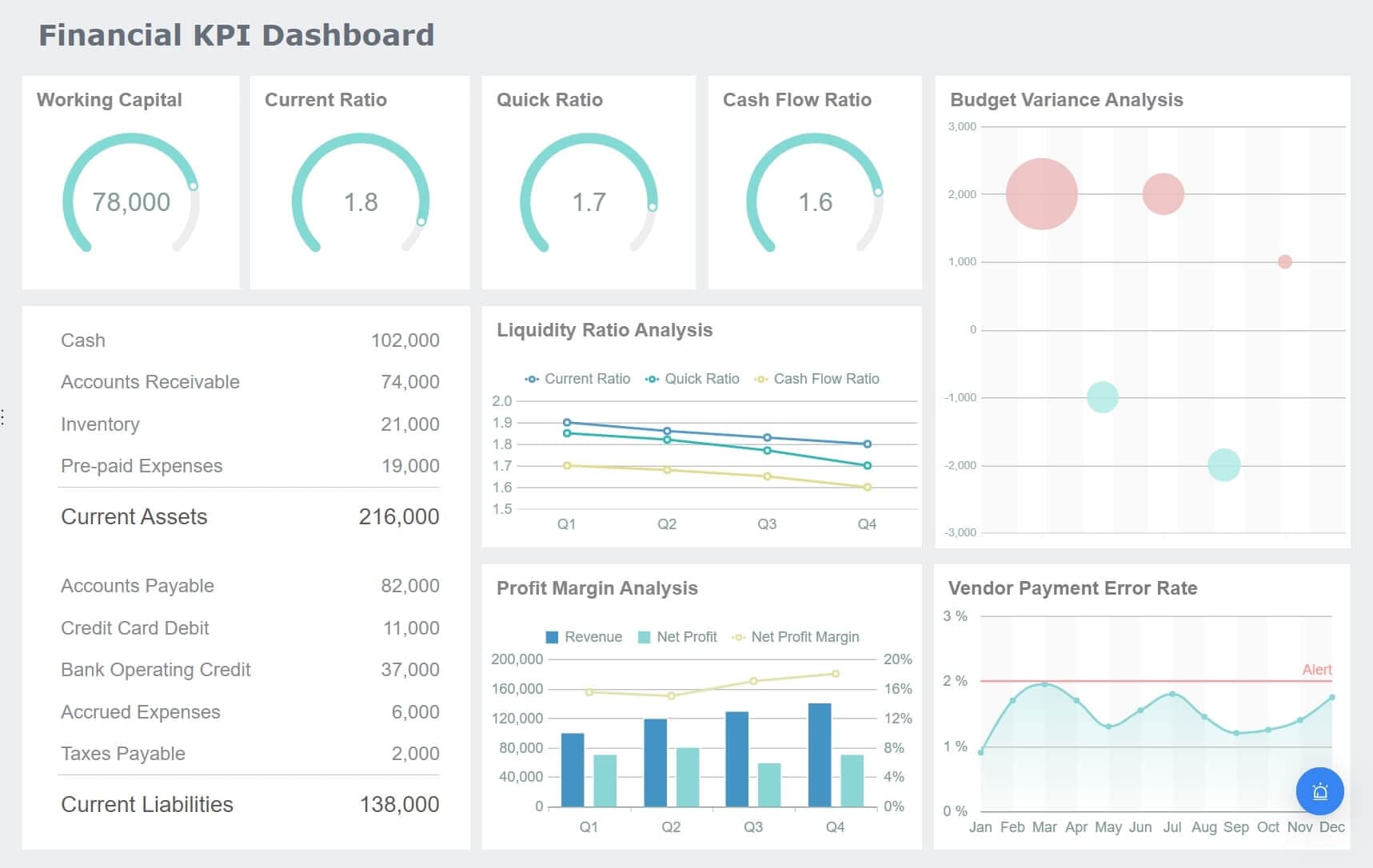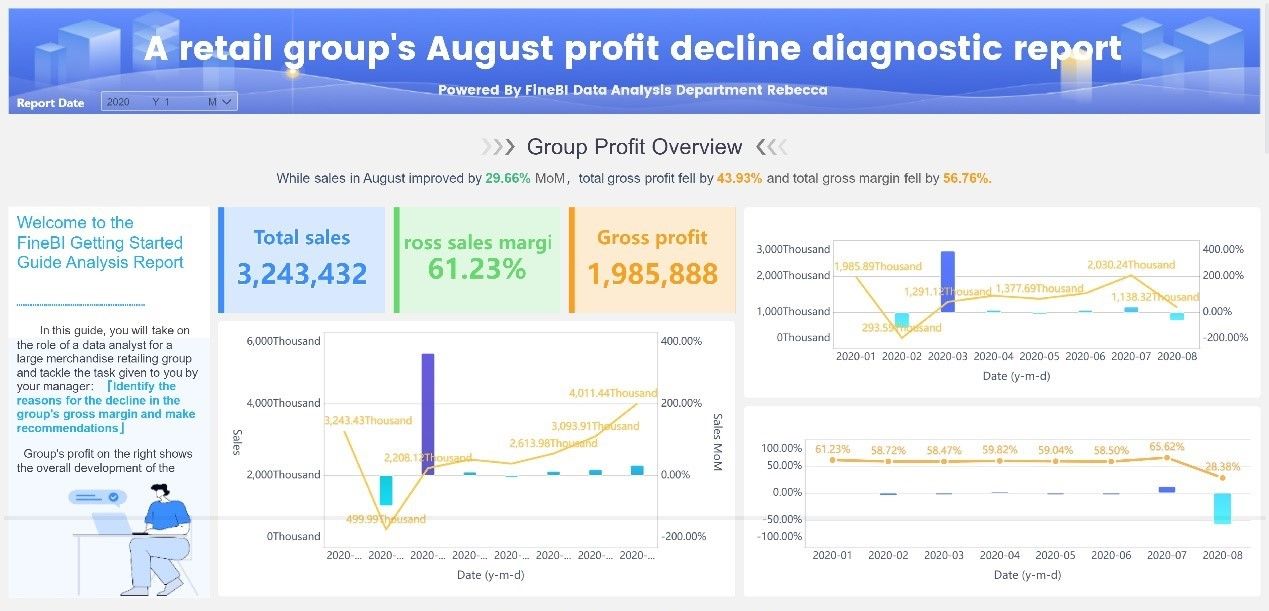

Data Science as a Service (DSaaS) offers organizations the ability to leverage advanced analytics without needing in-house expertise. DSaaS emerged as a solution for businesses facing a shortage of skilled data scientists. Over the years, DSaaS has evolved, enabling companies to access powerful data-driven insights through cloud-based platforms. The importance of DSaaS in modern business cannot be overstated. It allows companies to make informed decisions, optimize strategies, and scale analytics capabilities efficiently.
Understanding Data Science as a Service
Core Components of Data Science as a Service
Data Collection and Storage
Data collection forms the foundation of any data science initiative. Organizations gather data from various sources, including customer interactions, social media, and internal systems. Effective data storage ensures that collected data remains secure and accessible. Cloud-based storage solutions offer scalability and flexibility, allowing businesses to manage large volumes of data efficiently.
Data Processing and Analysis
Data processing involves cleaning and transforming raw data into a usable format. Advanced analytics models then analyze this processed data to extract meaningful insights. Machine learning algorithms play a crucial role in identifying patterns and making predictions. These processes enable organizations to make data-driven decisions and optimize their operations.
Data Visualization and Reporting
Data visualization converts complex data sets into visual formats such as charts and graphs. This makes it easier for stakeholders to understand and interpret the data. Reporting tools generate comprehensive reports that highlight key findings and trends. These visualizations and reports facilitate informed decision-making and strategic planning.
How Data Science as a Service Works
Cloud-based Platforms
Cloud-based platforms provide the infrastructure needed for data science as a service. These platforms offer on-demand access to advanced analytics tools and resources. Businesses can leverage these platforms without investing in expensive hardware or software. Cloud-based solutions ensure that data science capabilities remain scalable and cost-effective.
Integration with Existing Systems
Integration with existing systems is essential for seamless data flow. Data Science as a Service solutions connect with various data sources and business applications. This integration allows organizations to harness the full potential of their data. Compatibility with legacy systems ensures that businesses can adopt DSaaS without disrupting their current operations.
User Interfaces and Tools
User interfaces and tools simplify the interaction with DSaaS platforms. Intuitive dashboards and user-friendly tools enable users to perform complex analyses with ease. These interfaces provide access to a wide range of data science functionalities. Businesses can customize these tools to meet their specific needs and requirements.
Benefits of Data Science as a Service
Cost Efficiency of Data Science as a Service
Reduced Infrastructure Costs
Data Science as a Service (DSaaS) eliminates the need for businesses to invest in expensive hardware and software. Cloud-based platforms provide the necessary infrastructure, reducing capital expenditure. Organizations can allocate resources more effectively by avoiding large upfront costs.
Pay-as-you-go Models
DSaaS offers flexible pricing models. Businesses pay only for the services they use. This model allows companies to scale their data science efforts without financial strain. Predictable costs help in budgeting and financial planning.
Accessibility and Scalability of Data Science as a Service
Access to Advanced Tools
DSaaS provides access to state-of-the-art analytics tools. Organizations can leverage these tools without developing in-house expertise. Advanced analytics models empower businesses to gain insights quickly. These insights help in adapting to market trends and identifying new opportunities.
Scalability for Growing Data Needs
DSaaS solutions offer scalability. Businesses can handle increasing volumes of data without performance issues. Cloud-based platforms ensure that data storage and processing capabilities grow with organizational needs. Scalability supports long-term business growth and data management.
Expertise and Support of Data Science as a Service
Access to Data Science Experts
DSaaS connects organizations with experienced data scientists. These experts bring specialized knowledge to the table. Businesses benefit from expert analysis and recommendations. Access to professional expertise enhances the quality of data-driven decisions.
Ongoing Support and Maintenance
DSaaS providers offer continuous support. Regular updates and maintenance ensure that data science tools remain effective. Ongoing support helps in addressing any technical issues promptly. Reliable support services contribute to seamless data science operations.
Methodologies and Techniques in Data Science as a Service
Machine Learning and AI
Predictive Analytics
Predictive analytics involves using historical data to make informed predictions about future events. Data science experts employ machine learning algorithms to analyze past trends and patterns. These algorithms can predict customer behavior, market trends, and potential risks. Businesses use predictive analytics to enhance decision-making and strategy formulation. The ability to foresee future outcomes provides a competitive edge.
Natural Language Processing
Natural Language Processing (NLP) focuses on the interaction between computers and human language. Data science professionals use NLP to analyze and interpret textual data. This technique enables machines to understand, process, and generate human language. Applications of NLP include sentiment analysis, chatbots, and automated content generation. Businesses leverage NLP to improve customer service and gain insights from social media.
Data Mining and Big Data Analytics
Techniques and Tools
Data mining involves extracting valuable information from large datasets. Data science specialists use various techniques, such as clustering, classification, and association, to help identify hidden patterns and relationships within the data. Tools like Hadoop and Spark facilitate the processing of big data, enabling the efficient handling of vast amounts of information.
Real-world Applications
Real-world applications of data mining and big data analytics span multiple industries. In healthcare, data science helps predict disease outbreaks and personalize treatments. Financial institutions use these techniques to detect fraud and manage risks. Retailers analyze customer data to optimize inventory and enhance customer experiences. Data science empowers organizations to make data-driven decisions and achieve better outcomes.
Practical Applications of Data Science as a Service
Industry Use Cases
Healthcare
Data Science as a Service (DSaaS) revolutionizes healthcare by enhancing patient care and operational efficiency. Hospitals use DSaaS to analyze patient data for early disease detection. Predictive analytics models identify at-risk patients, enabling timely interventions. Data science tools optimize treatment plans, improving patient outcomes. DSaaS also helps in managing hospital resources effectively, reducing costs.

Finance
The finance industry leverages DSaaS for risk management and fraud detection. Financial institutions analyze transaction data to identify suspicious activities. Machine learning algorithms detect patterns indicative of fraud, safeguarding assets. DSaaS also aids in credit scoring by evaluating customer data. This ensures accurate risk assessment and informed lending decisions. Portfolio management benefits from data-driven insights, optimizing investment strategies.

Retail
Retailers use DSaaS to enhance customer experiences and streamline operations. Data science analyzes customer behavior, informing personalized marketing campaigns. Retailers predict demand trends, optimizing inventory management. This minimizes stockouts and overstock situations. DSaaS also assists in pricing strategies by analyzing market trends and competitor data. Retailers gain a competitive edge through data-driven decision-making.

Case Studies of Data Science as a Service
Successful Implementations
Healthcare Provider Enhances Patient Care: A leading healthcare provider implemented DSaaS to improve patient care. The provider used predictive analytics to identify high-risk patients. Early interventions reduced hospital readmissions by 20%. Data science models optimized treatment plans, resulting in better patient outcomes. The provider also achieved cost savings by efficiently managing resources.
Financial Institution Detects Fraud: A major bank adopted DSaaS for fraud detection. Machine learning algorithms analyzed transaction data in real-time. The bank identified and prevented fraudulent activities, saving millions of dollars. Data science tools also improved credit scoring accuracy. This led to more reliable lending decisions and reduced default rates.
Retailer Optimizes Inventory Management: A global retailer utilized DSaaS to optimize inventory management. Data science models predicted demand trends accurately. The retailer reduced stockouts by 30% and minimized overstock situations. Personalized marketing campaigns based on customer data increased sales by 15%. The retailer gained a competitive advantage through data-driven strategies.
Lessons Learned
Importance of Data Quality: Ensuring high-quality data is crucial for successful DSaaS implementations. Accurate and clean data leads to reliable insights and better decision-making. Organizations must invest in robust data governance policies to maintain data quality.
Scalability and Flexibility: DSaaS solutions must be scalable to handle growing data needs. Cloud-based platforms offer the flexibility required for expanding operations. Businesses should choose DSaaS providers that offer scalable and customizable solutions.
Expertise and Support: Access to data science experts enhances the effectiveness of DSaaS. Continuous support and maintenance ensure smooth operations. Organizations should partner with providers that offer ongoing support and expert guidance.
Challenges and Considerations of Data Science as a Service
Data Security and Privacy
Compliance with Regulations
Data Science as a Service (DSaaS) must adhere to strict regulations. Regulatory bodies impose stringent requirements on data handling. Organizations must comply with laws such as the General Data Protection Regulation (GDPR) and the California Consumer Privacy Act (CCPA). Non-compliance can result in severe penalties. DSaaS providers must ensure that their services align with these regulations. Regular audits and compliance checks help maintain adherence to legal standards.
Protecting Sensitive Information
Protecting sensitive information remains a top priority in DSaaS. Data breaches can lead to significant financial and reputational damage. Encryption techniques safeguard data during transmission and storage. Access controls restrict data access to authorized personnel only. Multi-factor authentication adds an extra layer of security. DSaaS providers must implement robust security measures to protect sensitive information. Regular security assessments and updates ensure ongoing protection.
Integration Challenges of Data Science as a Service
Compatibility with Legacy Systems
Integrating DSaaS with legacy systems poses significant challenges. Many organizations rely on outdated infrastructure. Compatibility issues can hinder seamless data flow. DSaaS providers must ensure that their solutions work with existing systems. Middleware solutions can facilitate integration. Custom APIs enable communication between old and new systems. Ensuring compatibility minimizes disruptions and enhances data science capabilities.
Data Migration Issues
Data migration presents another challenge for DSaaS adoption. Transferring large volumes of data can be complex and time-consuming. Data integrity must be maintained during the migration process. Any loss or corruption of data can have serious consequences. DSaaS providers must offer reliable data migration services. Automated tools can streamline the migration process. Thorough testing ensures that data remains intact and accessible post-migration.
Future Trends in Data Science as a Service
Emerging Technologies
AI and Machine Learning Advancements
Artificial Intelligence (AI) and Machine Learning (ML) continue to evolve rapidly. These technologies enhance the capabilities of Data Science as a Service (DSaaS). AI algorithms now handle more complex tasks with higher accuracy. Machine learning models improve predictive analytics and decision-making processes. Businesses benefit from faster and more reliable insights.
Quantum Computing
Quantum computing represents the next frontier in data science. Quantum computers process vast amounts of data at unprecedented speeds. This technology revolutionizes DSaaS by solving problems that traditional computers cannot. Quantum computing enhances optimization, cryptography, and complex simulations. Organizations gain a competitive edge through advanced data processing capabilities.
Market Growth and Opportunities
Increasing Adoption Rates
The adoption of DSaaS continues to rise across various industries. Companies recognize the value of data-driven insights. Small and medium-sized enterprises (SMEs) embrace DSaaS for its cost-effectiveness. Large corporations leverage DSaaS to scale their analytics efforts. The growing demand for data science solutions drives market expansion.
New Business Models
New business models emerge as DSaaS evolves. Subscription-based services offer flexible pricing options. Pay-per-use models provide cost efficiency for businesses with varying needs. Customized DSaaS solutions cater to specific industry requirements. These innovative models make data science accessible to a broader audience.
Data Science as a Service (DSaaS) offers numerous benefits. DSaaS provides cost-effective access to advanced analytics without requiring in-house expertise. Businesses can leverage data-driven insights to make informed decisions and optimize strategies. The future of DSaaS looks promising with advancements in AI and quantum computing. These technologies will further enhance data processing capabilities. Companies should consider adopting DSaaS to stay competitive and scale their analytics efforts efficiently.
FAQ
The cost of Data Science as a Service (DSaaS) varies based on several factors. These include the complexity of the analytics required, the volume of data processed, and the specific services utilized. Many providers offer flexible pricing models such as pay-as-you-go or subscription-based plans. This flexibility allows businesses to manage their budgets effectively while accessing advanced data science capabilities.
Data security remains a top priority for DSaaS providers. Robust encryption techniques protect data during transmission and storage. Access controls ensure that only authorized personnel can access sensitive information. Regular security audits and compliance with regulations like GDPR and CCPA further enhance data protection. Businesses can trust DSaaS solutions to maintain high standards of data security.
Yes, DSaaS offers customization options to meet specific business needs. Providers tailor services to align with industry requirements and organizational goals. Custom APIs and middleware solutions facilitate seamless integration with existing systems. Businesses can also customize user interfaces and tools to suit their unique workflows. This flexibility ensures that DSaaS delivers maximum value.
Various industries benefit significantly from DSaaS. Healthcare organizations use data science to improve patient care and operational efficiency. Financial institutions leverage DSaaS for risk management and fraud detection. Retailers optimize inventory and enhance customer experiences through data-driven insights. The versatility of DSaaS makes it valuable across multiple sectors.
DSaaS supports decision-making by providing actionable insights derived from data analysis. Advanced analytics models identify patterns and trends that inform strategic decisions. Predictive analytics help businesses anticipate future events and adjust strategies accordingly. Data visualization tools present complex data in an easily understandable format, aiding quick and informed decision-making.
Successful DSaaS implementation relies on several key components. High-quality data forms the foundation for reliable insights. Integration with existing systems ensures seamless data flow. Access to experienced data scientists enhances the effectiveness of analytics. Ongoing support and maintenance keep the DSaaS tools functioning optimally. Scalability and flexibility allow businesses to adapt to changing data needs.
Continue Reading About Data Science as a Service
2025 Best Data Integration Solutions and Selection Guide
Explore top data integration solutions for 2025, enhancing data management and operational efficiency with leading platforms like Fivetran and Talend.
Howard
Dec 19, 2024
2025's Best Data Validation Tools: Top 7 Picks
Explore the top 7 data validation tools of 2025, featuring key features, benefits, user experiences, and pricing to ensure accurate and reliable data.
Howard
Aug 09, 2024
Best Data Integration Platforms to Use in 2025
Explore the best data integration platforms for 2025, including cloud-based, on-premises, and hybrid solutions. Learn about key features, benefits, and top players.
Howard
Jun 20, 2024
Best Data Integration Vendors for Seamless Workflows
Discover the top 20 data integration vendors of 2025 for seamless workflows. Compare tools like Talend, AWS Glue, and Fivetran to optimize your data processes.
Howard
Jan 22, 2025
Best Data Management Tools of 2025
Explore the best data management tools of 2025, including FineDataLink, Talend, and Snowflake. Learn about their features, pros, cons, and ideal use cases.
Howard
Aug 04, 2024
Customer Data Integration: A Comprehensive Guide
Master customer data integration to enhance business operations by combining data from multiple sources for a comprehensive customer view.
Howard
Sep 07, 2024


